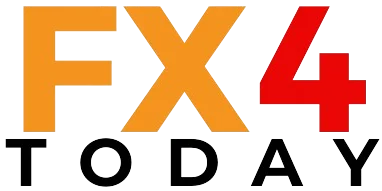Choosing the Right Forex Broker: What You Need to Know
Forex brokers are financial institutions or firms that provide traders with access to a platform for buying and selling foreign currencies. They act as intermediaries between the forex market and traders, facilitating currency trading for both retail and institutional clients. Here’s a breakdown of what forex brokers do and some important aspects to consider when choosing one:
What Forex Brokers Do:
- Execution of Trades: Forex brokers execute buy and sell orders on behalf of traders. They offer access to the forex market through trading platforms where traders can place orders.
- Leverage Provision: Brokers often offer leverage, allowing traders to control a larger position than their actual capital. This can increase potential profits but also magnify potential losses.
- Market Access: Brokers provide access to a variety of currency pairs, allowing traders to speculate on the exchange rates between different currencies.
- Trading Platforms: Brokers offer trading platforms, such as MetaTrader 4 (MT4), MetaTrader 5 (MT5), or proprietary platforms, where traders can analyze the market, place trades, and manage their accounts.
- Spreads and Commissions: Brokers earn money by charging a spread (the difference between the buy and sell price) or a commission on trades. Spreads can be fixed or variable.
- Educational Resources: Many brokers provide educational materials, including tutorials, webinars, and articles, to help traders improve their skills.
- Customer Support: Brokers offer customer support to assist traders with any issues related to trading, account management, or platform navigation.
Types of Forex Brokers:
- Dealing Desk (Market Makers): These brokers create their markets and often take the opposite side of a trader’s position. They may offer fixed spreads but can have a conflict of interest with traders.
- No Dealing Desk (NDD): These brokers do not take the opposite side of a trade. Instead, they pass orders directly to the interbank market or liquidity providers. They can offer tighter spreads and faster execution.
- Straight Through Processing (STP): STP brokers route orders directly to their liquidity providers, usually resulting in variable spreads.
- Electronic Communication Network (ECN): ECN brokers connect traders directly with the market participants, offering tighter spreads and higher transparency but often charging a commission.
Important Factors to Consider When Choosing a Forex Broker:
- Regulation: Ensure the broker is regulated by a reputable authority like the FCA (UK), CySEC (Cyprus), SEBI (India), or ASIC (Australia). This protects your funds and ensures the broker adheres to fair trading practices.
- Trading Platform: Check if the broker’s trading platform suits your needs regarding usability, tools, and features. Popular platforms include MT4, MT5, and cTrader.
- Spreads and Fees: Compare spreads, commissions, and other fees across brokers. Low spreads and transparent fee structures are preferable.
- Leverage: Understand the leverage offered by the broker and ensure it aligns with your risk tolerance.
- Deposit and Withdrawal Options: Check the ease of depositing and withdrawing funds and the associated fees.
- Customer Support: Good customer support is essential, especially for beginners. Ensure the broker offers support in your preferred language and through multiple channels.
- Educational Resources: If you’re new to forex trading, look for brokers that provide extensive educational resources.
- Reputation: Research the broker’s reputation through reviews and ratings from other traders. A broker with a solid track record and positive reviews is generally more trustworthy.
Popular Forex Brokers (Global):
- IC Markets
- Pepperstone
- Forex.com
- OANDA
- XM
- HotForex
- FP Markets
- Admiral Markets
- Alpari
- FXTM (ForexTime)
Choosing the right forex broker is crucial for your trading success. Make sure to consider the factors mentioned above and test the broker’s platform through a demo account before committing real funds.





